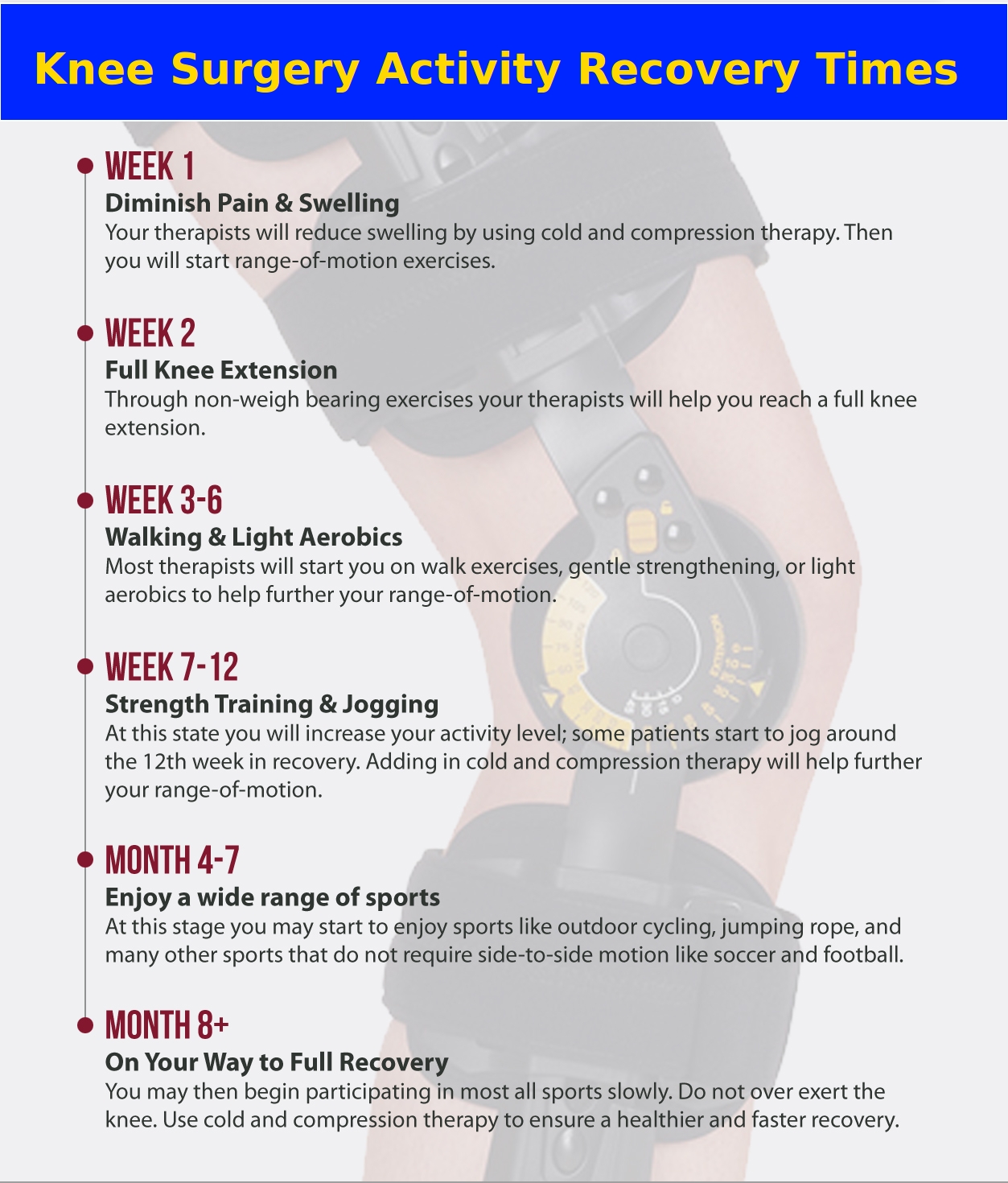Total Knee Replacement Surgery Recovery Time and What to Expect
It is important for people who are about to undergo total knee replacement and the people who will be supporting them to understand how quickly they will be able to recover various activities and mobility after the operation.
There is a wealthy of information about the operation but not much about recovery times. After patients are transferred to a post-operation recovery room for several hours and then moved to a hospital room. After several days and various tests patients go home.
Generally the after surgery, a physical therapist shows patients how to exercise their your new knee. Patients are also given lots of advice about wound care, exercise and diet. Patients are encouraged to be as active as possible and to undertake a staged walking mobility program, initially indoors and then outdoors.
Patients are also encouraged to resume their normal activities such as walking up and down stairs, and driving the car. They are also encouraged to do knee-strengthening exercises taught to them by physical therapists several times a day.
Walking is initially done with a walker, then a cane and then unassisted. Knee replacement recovery time vary from person to person, but what can patients expect for recovery times and resuming normal activities without pain?


General Recovery Time Expectations Guide for Total Knee Replacements
Most people recover well and quickly after surgery and patients are encouraged to go home in just a few days as this helps them adapt and resume their normal lives. Most people will be able to stand up on your their new knees within 24 hours, and to begin walking using a frame or crutches. After a few days most people can progress to walking short distances with a cane.
Key Aspects of the Recovery
Most people notice a dramatic improvement in their knees and improved mobility after about a month. Pain and swelling can take up to 3 months to disappear completely. The total knee replacement recovery process generally continues up to 2 years after the operation.
- Care of Wound: The wound needs to be looked after and kept clean and dry.
- Removal of Stitches: Generally after 7-10 days.
- Rehabilitation Program: This will generally be required for at least 3 months after surgery, probably for 6 months to get the best outcome and to avoid set backs.
- Walking: People can expect to be able to walk for longer distances and times as their recovery progresses and to walk without any walking aids by 3-6 weeks.
- Normal daily activities such as shopping and light housekeeping: These activities can generally be resumed after 4-6 weeks.
- Driving: Most people can expect to resume driving after about 4-6 weeks, provided they can perform an emergency braking stop.
- Sporting Activities and Recreation: Most activities can be resumed after about 6-12 weeks. Some activities such as swimming can be resumed much earlier. Extra precautions are required for sports such as golf. The more demanding and jarring activities are not advisable after a total knee replacement including: jogging, squash, badminton, all contact sports (e.g. football and basketball), jumping and skiing.
Things to Avoid for 6-8 weeks after surgery
- Avoid any twisting or pivoting on your knee
- Avoid kneeling
- Avoid squatting
- Avoid bangs and jarring of the knee though jumps and falls
Variability of Recovery Rates
Recovery times vary between individuals for various reasons. The two graphs provide an idea of the variability of the recovery rates for various activities and pain thresholds.
- About 40% of people can walk without a walker after 1 week and 90% after 4 weeks
- About 30% of people can walk without a cane after 1 week and 80% after 4 weeks
- About 25% of people can drive a car after 2 weeks and 55% after 4 weeks
Pain Expectations when Walking
- About 25% of people can expect to walk for 5-15 minutes without significant pain
- About 35% of people can expect to walk for 6-30 minutes without significant pain
- About 25% of people can expect to walk for more than 30 minutes without significant pain


